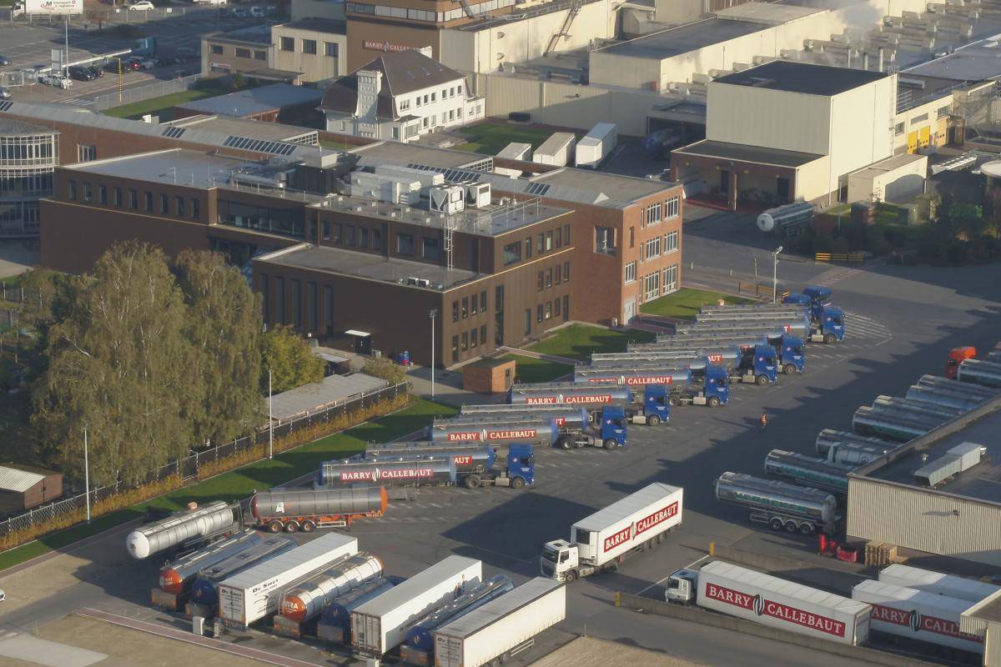Despite halting production at its Wieze plant in Belgium after discovering salmonella in a production lot on June 27, Barry Callebaut AG achieved volume growth of 5.3% in the 2021-22 fiscal year.
“I'm very happy also that we could share two weeks ago that the world's largest chocolate factory is running again at its normal capacity,” Peter Boone, chief executive officer, said during a Nov. 1 conference call with analysts to discuss the company’s financial performance.
“We were on a very, very strong growth trajectory in the first nine months, which was impacted by the Wieze incident in the fourth quarter,” Boone said. “Despite this, we still achieved a strong volume growth of 5.3%, and mainly driven by a strong [trade] performance of 5.9%. This is well ahead of the flat underlying chocolate confectionery market according to Nielsen.”
In fiscal 2021-22, sales volume of 2.31 million tonnes was up 5.3% from 2.19 million tonnes in 2020-21. Sales revenue of 8.09 billion Swiss francs ($8.07 billion) was up 12.3% from 7.21 billion Swiss francs in 2020-21. Net profit for the year contracted 6.1% in 2021-22 to 360.9 million Swiss francs ($360.1 million) from 384.5 million Swiss francs in 2020-21.
“As indicated in the nine months sales update in July, the Salmonella incident in the Wieze factory had a notable financial impact of minus 76.9 million Swiss francs,” said Ben De Schryver, chief financial officer. “This net one-off impact includes the estimated cost of fulfilling contractual obligations, the cost of cleaning, destruction and transportation net of insurance. The direct loss volume and related profits are included in the reported results.
“And lastly, the closure of our chocolate factory in Morton in the UK led to a cost of 7.8 million Swiss francs. In summary, the three nonrecurring items amounted to minus 71.2 million Swiss francs on the operating results, leading to an EBIT reported of 553.5 million Swiss francs versus a recurring of 624.7 million Swiss francs impacting mainly region EMEA and due to the Brazilian tax recovery Region Americas and Global Cocoa.”
In Gourmet & Specialties, volume rose 22.5% to 299,692 tonnes from 244,568 in 2020-21. Revenue increased 24.3% to 1.39 billion Swiss francs, up from 1.12 billion Swiss francs. “The Gourmet & Specialties business was not immediately impacted by the incident and continued its strong growth trajectory,” Mr. De Schryver said.
In the Americas region, volume rose 6.4% to 649,389 tonnes from 610, 133 in 2020-21. Revenue increased 19.7% to 2.19 billion Swiss francs, up from 1.83 billion Swiss francs. “Region Americas exemplary showed strong smart growth, leading to double-digit EBIT increase,” Mr. De Schryver said.
“Sales volume reached a record level of close to 650,000 tonnes up 6.4%, clearly outpacing the regional underlying chocolate confection market. This was achieved thanks to the food manufacturers volume growth that was broad-based and supported by ongoing trends for better-for-you products. Gourmet & Specialties continued strong volume growth from north to south. This strong smart growth in both segments translated into double-digit recurring EBIT increase of 14.8% in local currencies.”
The board of directors has proposed the election of Thomas Intrator as a new member of the board. Mr. Intrator led a career in international shipping, trading, energy and risk management at Cargill, culminating in his latest role as president and CEO of Cargill SA. “His expertise in energy, logistics, trading and risk management will make a significant contribution to expand the board expertise in these important areas,” Barry Callebaut said.





